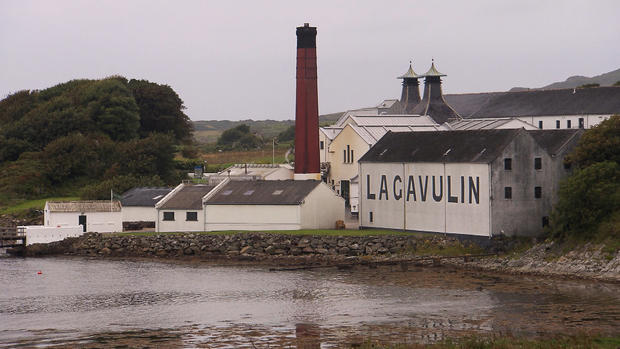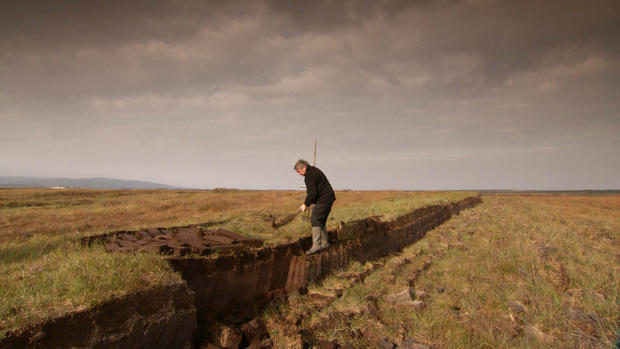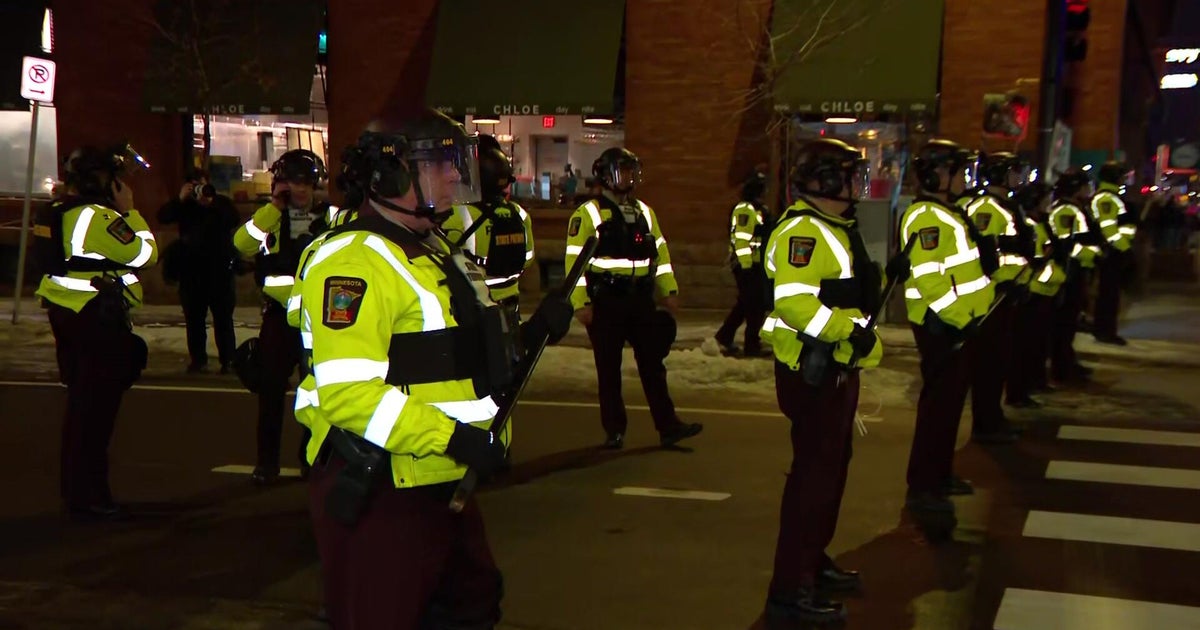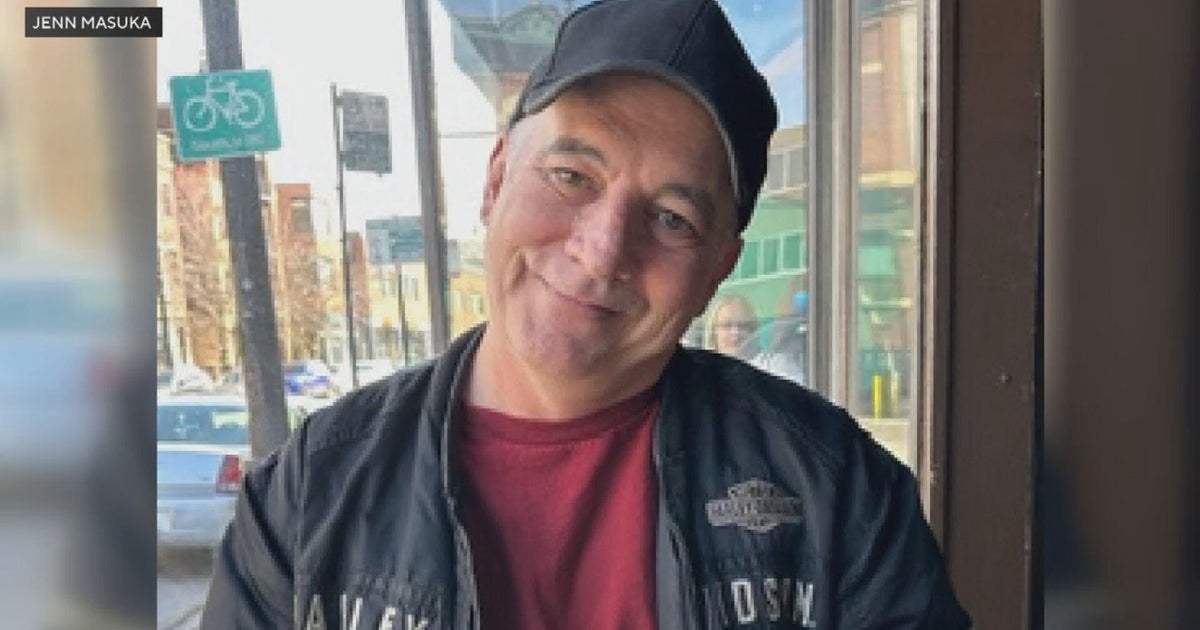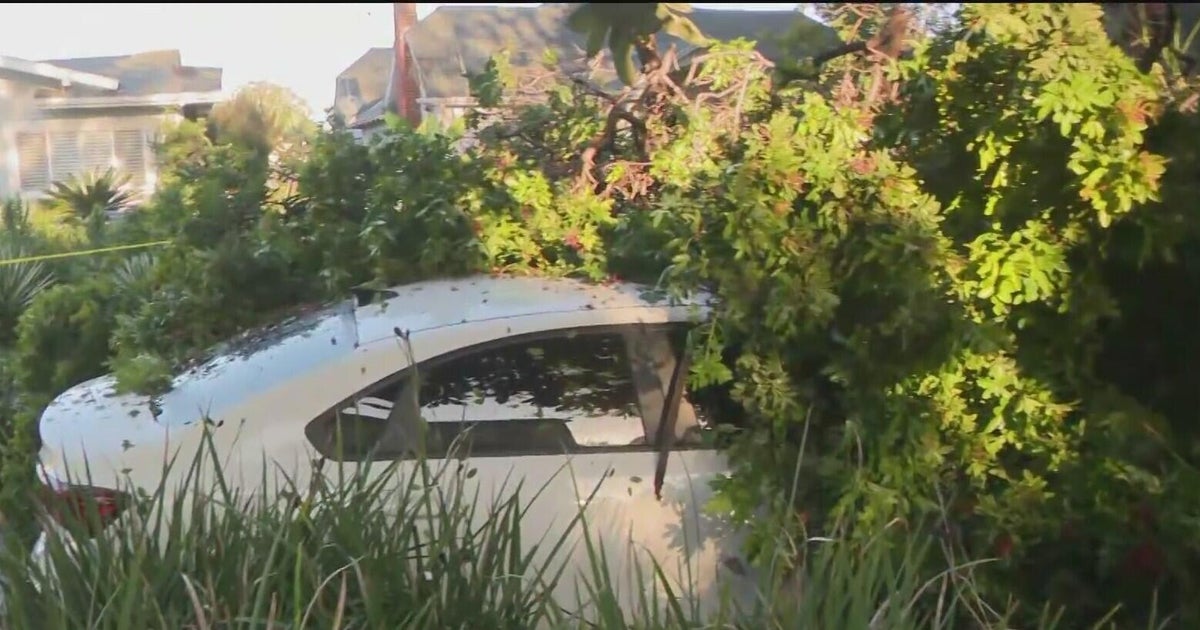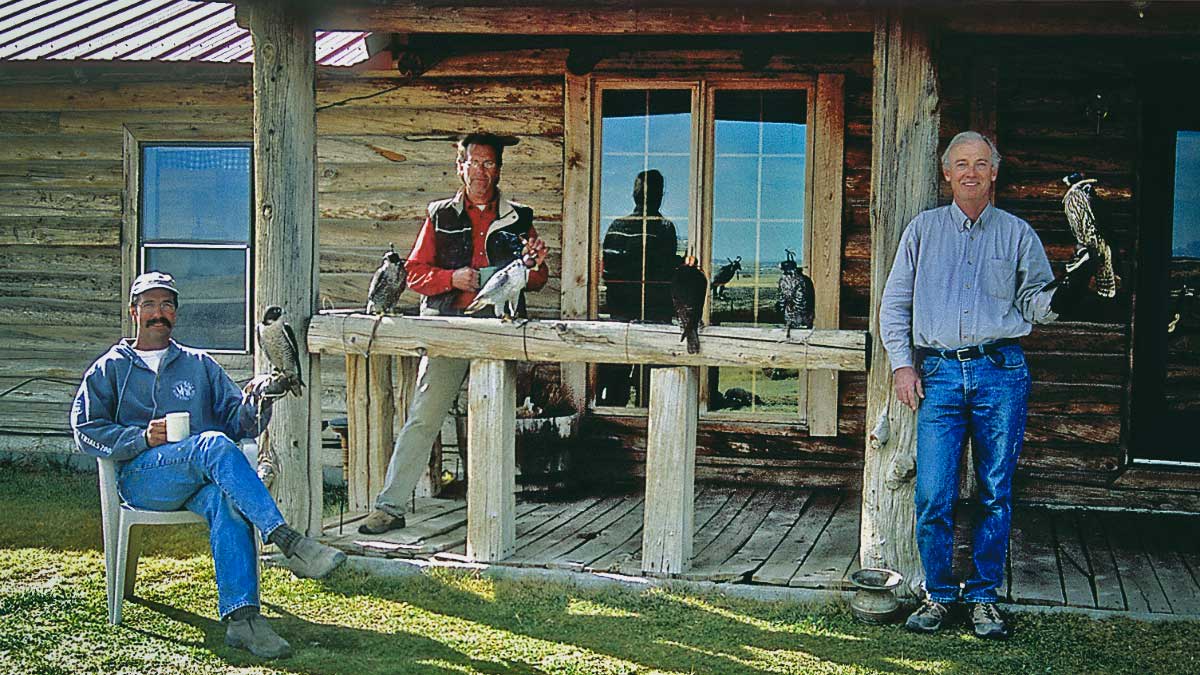Whisky Island
When our late colleague Bob Simon heard about a magical place in the Hebrides islands off the coast of Scotland, known for making some of the great whiskies in the world….well, the story spoke to him.
The place is called Islay and it's one of five whisky-producing regions in Scotland that make an expensive type of scotch called single malt.
Islay's distilleries turn out relatively small amounts of their own handcrafted brands for a worldwide luxury market that's more than doubled in size in the last decade, and become the spirit equivalent of the fine wine business.
Bob liked good scotch and beautiful places. So he went off to Scotland - but died before he could finish the piece, leaving behind a stack of video tapes and some random notes. Back in 2015, Steve Kroft decided to finish it for him and raise a glass in Bob's memory.
Islay is a small island 20 miles off the west coast of Scotland. There are few trees -- miles of windswept heather -- and some of the most fertile agricultural land in Scotland. There are sheep and cattle everywhere and an abundance of wildlife but that's not why people come here. This is! Eight small distilleries, that produce some of the world's finest single malt whiskies.
"I just thank God that he chose the Scots and gave them whisky 'cause we appreciate the gift and we look after it."
Jim McEwan: This is the whole lifeblood of this island and everybody on it. This is all we know.
Jim McEwan has been working in Islay's distilleries since he was 15 years old. He's now master of the works at Bruichladdich.
Jim McEwan: I just thank God that he chose the Scots and gave them whisky 'cause we appreciate the gift and we look after it.
They've been making it here since the 15th century when supposedly some monks taught the locals how to use barley, water and yeast to make a spirit the Scots now call the water of life. They have been perfecting it for 600 years.
The distilleries are easy to find, but hard to pronounce: Ardbeg, Bowmore, Bruichladdich, Bunnahabain, Caol Ila, Kilchoman, Lagavulin and Laphroaig. As Bob Simon noted, they get harder to pronounce the more you visit.
Jim McEwan: For us guys on the west coast of Scotland, whisky is a religion, because it's a provider. And the great thing about whisky, it's not just a drink -- it's much more than that. Have you ever watched some old Hollywood movies?
Bob Simon: Yes, I have.
Jim McEwan: Scotch was always portrayed in Hollywood as a whisky when you were down or you were in trouble, the one thing that was gonna get you back on your feet and out there was a scotch.
Today, if you are down on your luck, you probably can't afford an Islay single malt. The good ones start at around $70 a bottle. The rare ones can go for hundreds of dollars a glass at chic whisky bars around the world, where they are known for their distinctive smoky taste.
It comes from peat, the mossy earthen fuel that's cut from bogs on the island. It was used to heat Scottish homes for centuries, and is still used to toast the barley at Islay distilleries.
John Campbell is the master distiller at Laphroig, one of the top-selling single malts in America.
John Campbell: Peat is the thing that makes Islay unique and it really resonates with people and it just engenders a kind of love/hate relationship. And the people that love it absolutely love it with a passion.
And there seems to be no shortage of them. Islay is not easy get to, usually requiring multiple flights, a long drive and a two-hour ferry ride, yet enthusiasts continue to make the pilgrimage, especially for the whisky festival.
Jim McEwan: We get literally thousands upon thousands of single malt tourists coming here. They come from all over the world just to set foot on Islay.
Bob Simon: To study it?
Jim McEwan: No, to drink it.
[Jim McEwan at festival: It's lovely. It's clean. It's fresh. It's vibrant.]
Officially "whisky fest" is a celebration of Islay's culture - but mostly it's about drinking.
[Jim McEwan at festival: It's absolutely beautiful...No off notes at all.]
As they listened to Jim McEwan extol the virtues of Bruichladdich, the novitiates, connoisseurs, and whisky snobs, approached each glass with reverence bordering on the religious.
[Jim McEwan at festival: Ah, wow. The fruit in that is incredible.]
As the glasses empty, the smiles got bigger. But the islanders will tell you that all of this warmth and good feeling comes not from the alcohol in the spirits but from the spirit of the place.
It is almost mystical, beautiful, dramatic and quiet. There's no road rage, barely any traffic, if you do get hung up it's probably because of a farm animal -- they have the right of way. And if you do happen upon people, they'll almost always greet you with the Islay wave.
Ailsa Hayes: Everybody just waves 'cause it's just friendly. There's not so many of us, so you just wave to say hi.
It's what Ailsa Hayes liked about the island when she moved her family here from London to take a manager's position at one of Islay's thriving distilleries.
Bob Simon: It's strange, is it not, that such a small place with so few people, your products are known everywhere in the world?
Ailsa Hayes: I know. Well, it makes us all very proud, it does. There's such a boom, worldwide, for single malt. It's fantastic. And you can really feel that on the island, a lot of the distilleries have double production. And so there's a lot of opportunities there, as well.
Bob Simon: And there's no reason to believe that won't continue?
Ailsa Heyes: Well, times are good, people drink. Times are bad, people drink.
Bob Simon: Is it possible to be socially acceptable to be a teetotaler on this island?
Ailsa Hayes: Yes.
Bob Simon: Are there any?
Ailsa Hayes: Yes. Not-- I'm not one of them.
Over the years, the island's people have learned how to entertain themselves, often at gatherings called Ceilidhs which feature traditional dance and sad songs, mostly about leaving Islay and yearning to return.
[Man sings: "To sit with my love on the bridge above the rippling waterfall. To go back home, never more to roam, is my dearest wish of all."]
If this looks and feels a lot like Ireland, that's no coincidence. It's only 25 miles away. They come from the same tribe, share the same Celtic culture and Gaelic language, not to mention a love of good whisky that gets them through stormy weather and the long winter nights.
There are no movie theaters on Islay, no dry cleaners, no supermarket, and no McDonald's...at least in the fast food business. Jim McEwan says there is a long list of things that Islay doesn't have...and doesn't want.
Jim McEwan: We don't have any crime, we don't have mugging, carjacking, house breaking, rape, just dope, drugs, we don't have that. You can keep that. You're very welcome to it.
Bob Simon: How do you explain the fact that there's no crime here? There's crime everywhere else.
Jim McEwan: There is no crime. If you commit a crime in a small community, you'll be ostracized and have to leave. Not only that, your family, your children and your children's children will be remembered as the children of the man who committed the crime.
Most Scots are forthright, practical people who are proud of their country and the fact that their most famous export has withstood the test of time. They see themselves as artisans and making whisky is more about art and alchemy than manufacturing.
Every distiller has their own secrets and superstitions. We'll give you the unclassified two-minute tour. Sorry we can't offer you free samples.
It begins with a bit of trickery on the malting floor when barley that's been soaked in water is spread out and raked over and over to convince the grain its spring and time to germinate, releasing the starches that are locked inside. It's then dried with peat smoke to add flavor and ground into flour sometimes with 19th century machinery, and then mixed with hot water, transforming the starches into a sugary concoction called mash.
Jim McEwan: Smell that, Bob. Isn't that-- you can smell the goodness.
Yeast is then added changing the sugar into alcohol, a primitive ale, which is then cooked a couple of times in copper stills where the vapor is collected and condensed into this clear liquid.
Jim McEwan: And that's the stuff we want to go into the barrel.
Bob Simon: But what I'm looking at, this looks like rubbing alcohol. This is in fact the whisky.
Jim McEwan: It's very good if you need a rub, there's no doubt about it.
Bob Simon: I bet it would be good. But once this goes into the barrel, from then it's just time?
Jim McEwan: It's just time. It's a great journey, you know. This is a child, but the cask is the mother. And that's what makes the journey. If you get a good cask, you're bound to get a good child. It's that simple.
It takes less than three weeks to make, but requires at least 10 years of aging in these oak casks -- which add flavor and color -- to turn it into world-class single malt whisky.
Jim McEwan: You'll see some of the names. There's Clermont Springs, Buffalo Trace, Jim Beam.
Bob was surprised to learn that 97 percent of the casks used to make single malt whisky, had been previously used to age American bourbon, and bought second hand from U.S. distillers. It's testimony to the ingenuity and frugality of the Scots who have very few oak trees.
Jim McEwan: Without the American barrels, there would be no whisky industry. It's as simple as that.
A sophisticated palate will detect a hint of the oak and bourbon in Islay's single malt...as well as the sweetness of sherry that comes from wine casks bought in Europe.
Before the final product is sold it will have done time in a number of different casks.
Master distiller Jim McEwan is the one who decides when to rotate them and when each barrel is ready to be bottled. He opened a young cask for Bob to sample.
Jim McEwan: I would describe that as mellow yellow. Absolutely pure.
Bob Simon: And it's only seven years old?
Jim McEwan: That's right.
Jim McEwan: Young whiskies are like young people. They're vibrant, they're full of life. In fact this for me is like coming home from work at the end of the day. I worked really hard, nobody appreciates me, my wife doesn't appreciate, my kids don't appreciate me, life's a bitch.
Bob Simon: Couple glasses of that and it doesn't matter.
Jim McEwan: Couple of shots of that and I am the king of the world.
Bob Simon: Absolutely. You know, frankly I never liked this stuff, but the way-- you're talking me into it.
Jim McEwan: But you gotta check every barrel.
Bob Simon: I certainly hope so. Cheers.
McEwan is the man responsible for the taste and consistency of the whiskies at Bruichladdich, which requires a very personal involvement with the product.
Bob Simon: I have heard you described as the cask whisperer.
Jim McEwan: I do talk to casks. There's no doubt about it--
Bob Simon: In what language?
Jim McEwan: Mainly English, depends how many whiskies I've had. If I've had a few whiskies, I tend to revert to the Gaelic language when I'm talking to the casks. It's just one of these things you go into the warehouse and you pop the bung out. You draw your sample, yeah. And you look at it. And you think, "Wow, you know, beautiful but you're not just ready yet. Tell you what, I'm going to come back and see you in three months, OK?" And other times you find a cask which is so incredibly good you can't not speak. "Oh my God, you are the most beautiful thing I have ever tasted in my life." You know, and it's like, oh geez, I just want to share this with somebody. But there's nobody around. There's just me and the casks.
Bob Simon: We'll stay.
On most days, McEwan devotes several hours to quality control, checking up on several hundred casks.
Jim McEwan: Yeah. But it's a fantastic job, nosing and tasting whiskies.
Bob Simon: And you can still walk out of here in the evening?
Jim McEwan: Occasionally I need some help. There's no doubt about that, yeah.
Dying devotion to one's whisky is apparently not all that unusual. While we were on Islay, the camera crew ran into a party of Canadians, the friends and family of a deceased single malt lover named Bill who wanted his ashes scattered in the waters opposite his favorite distillery, funds for the pilgrimage were set aside in his will.
Woman: It's what he wanted. It's good. It's good.
Jim McEwan: Cheers everybody!
All: To Bill! Slainte Mhath!
[Widow pours glass of whisky into bay.]
Widow: Now he's happy. Now he's happy.
After that, the only thing left was for Bob to say goodbye to Jim McEwan. And now it turned out to be "last call" for our old pal Bob Simon.
Jim McEwan: Cheers, Bob. Hope you've enjoyed this little visit here.
Bob Simon: You're speaking in the past. It's not over.
Jim McEwan: Yeah, I've gotta get you outta here, man. This is-- (laughter) you're costing me a fortune.
Not long after our story first aired, master distiller Jim McEwan retired, but not for long. McEwan is now part of the team opening Islay's ninth distillery called Ardnahoe, the first to open on the island in more than ten years.
This story originally aired on May 3, 2015. Bob Simon and Steve Kroft are the correspondents. Harry Radliffe II, producer.
